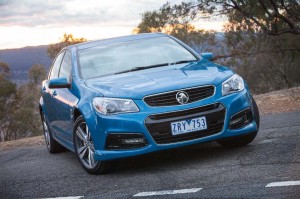The fate of General Motors operations in Australia is hanging in the balance as GM presses the Australian government for financial assistance to prop up the money-losing Holden unit.
GM has made no decision yet on whether to continue building cars in Australia beyond 2016, the managing director of the Holden subsidiary told a parliamentary commission while laying out the case for government subsidies.
Over the past decade, most automotive manufacturers have closed shop in Australia, turning to imports instead. Currently, only GM Holden, Ford Motor Co. and Toyota Motor Co. maintain production operations – and they are struggling in the face of both a huge run-up in the value of the Australian dollar and increased competition from foreign-made products.
“It’s hand-to-hand combat there,” said Mark Reuss, president of GM’s North American operations, and formerly the chief of Holden.
The Australian government has been supporting automotive manufacturing, but new Prime Minister Tony Abbott campaigned against industrial subsidies, though he said the auto industry could be an exception to the general policy. Nonetheless, Abbott’s government is preparing to cut automotive subsidies by A$500 million (US $400 million).
(GM tries to turn frustrated owners into loyal buyers. Click Here to find out what it’s doing.)
Though Holden managers would like to continue producing at least two models in Australia, they are having a difficult time justifying the estimated US$3,500 higher cost of building the vehicles there when compared to production costs in other parts of Asia. GM is warning it could close its plants as early as 2016 without some financial help.
It wouldn’t be the first. As it stands, only about 13% of the vehicles currently being sold in Australia are made in the country, down from 80% three decades ago.
The imports have put the entire Australia’s homegrown auto industry, which was traditionally protected by the country’s relative isolation, at risk. Mitsubishi Motors Corp was the first to pull the plug, exiting in 2008. Ford Motor Co announced in May it would close its two Australian auto plants in October 2016. Toyota also considering an exit strategy.
(GM pulls Chevrolet out of Europe. Click Here for the story.)
Further complicating the situation: Australia could soon face a new stream of imports from China – including models from plants operated by GM’s Chinese partners.
GM officials defend the existing subsidy program, Holden Managing Director Mike Devereux telling the government’s Productivity Commission it results in A$33 billion in economic activity.
“That is a very good return for the economy of this country,” Devereux said. “There is a level of assistance that needs to be there for GM to make a business case viable to be able to make cars here.”
The Holden chief pointed to the U.S. bailout of GM and Chrysler as a policy Australia could emulate, suggesting, “The budgetary cost of losing this industry would dwarf the cost of keeping it.”
With the U.S. Treasury selling off its shares of GM stock at a loss of more than $9 billion for U.S. taxpayers, a new study from the Center for Automotive Research in Ann Arbor, Mi. estimated that the auto bailout saved 1.2 million jobs in the U.S. and nearly $40 billion in tax revenues in 2009 alone.
(For more on the new auto bailout study, Click Here.)
Even with government support, Devereux said, Holden, which lost approximately $130 million in 2012, would look to reduce the number of local components used in its Commodore line of cars beyond 2016 to around 25 to 30% from 50% today.
GM has been looking to rationalize its global manufacturing and distribution networks as it continues to recover from its 2009 bankruptcy. While it has expanded production in Asia, most notably in China, it has already announced production cuts in Europe, including the closure of a German assembly line. Meanwhile, GM announced last week it will pull its Chevrolet brand out of Western Europe to focus, instead, on the German-based Opel brand.
Paul A. Eisenstein contributed to this story.

